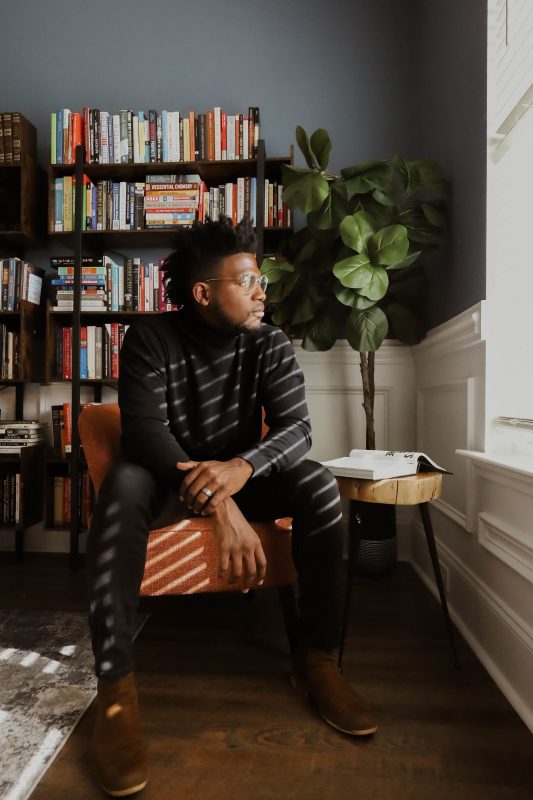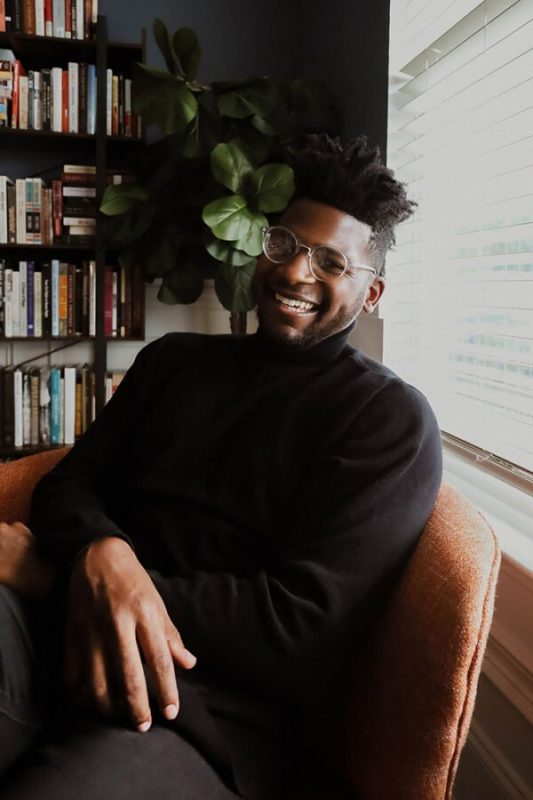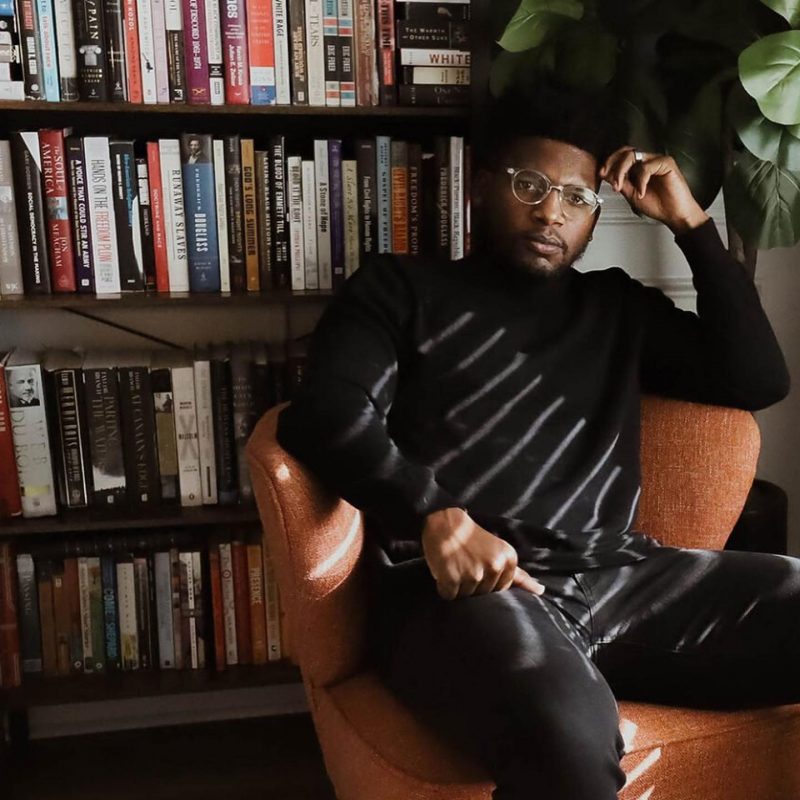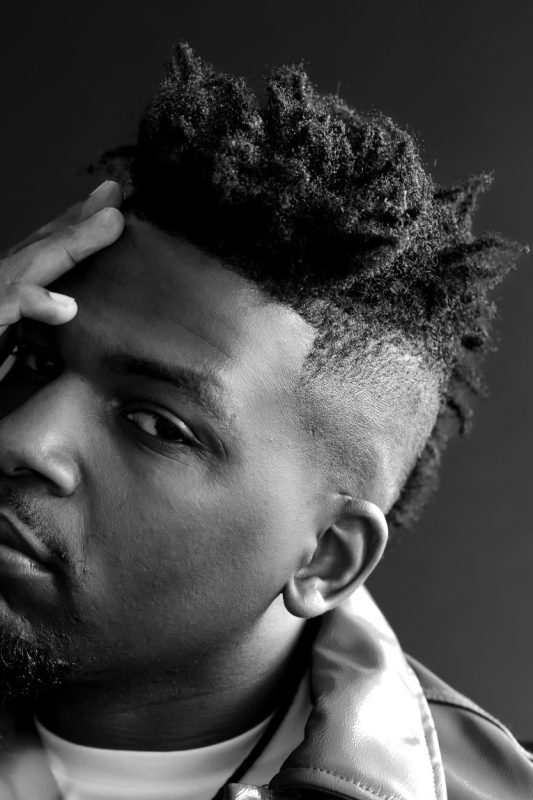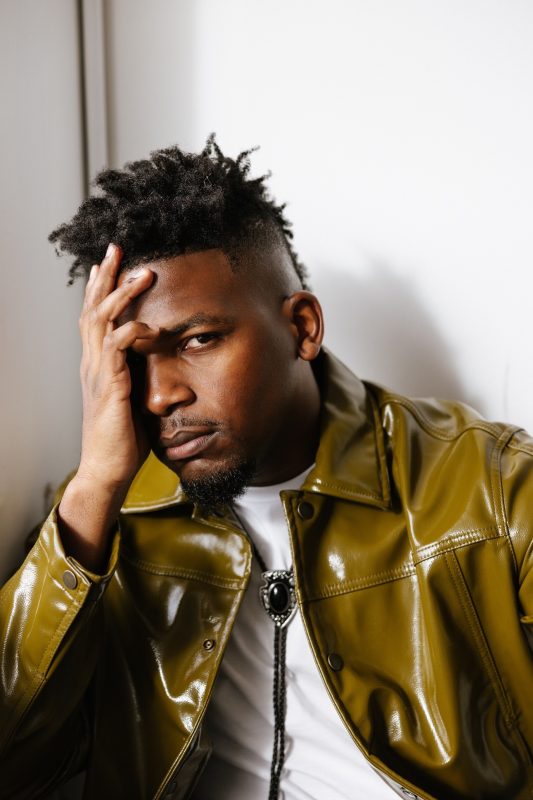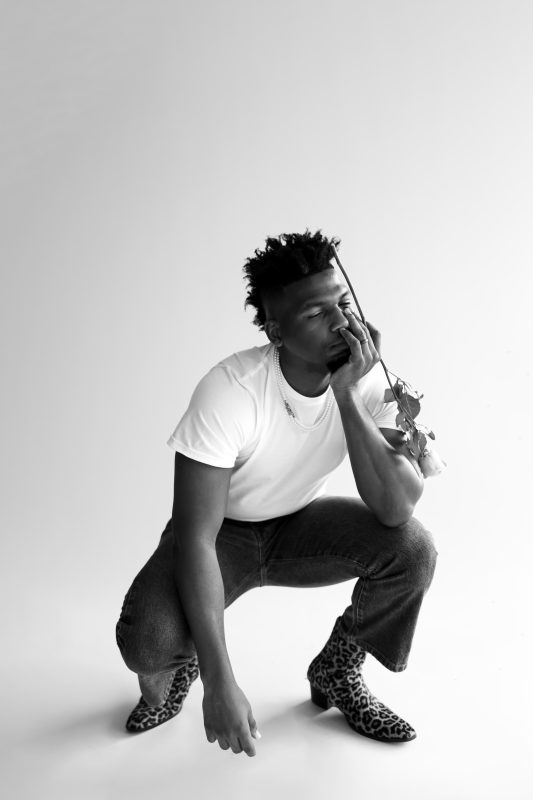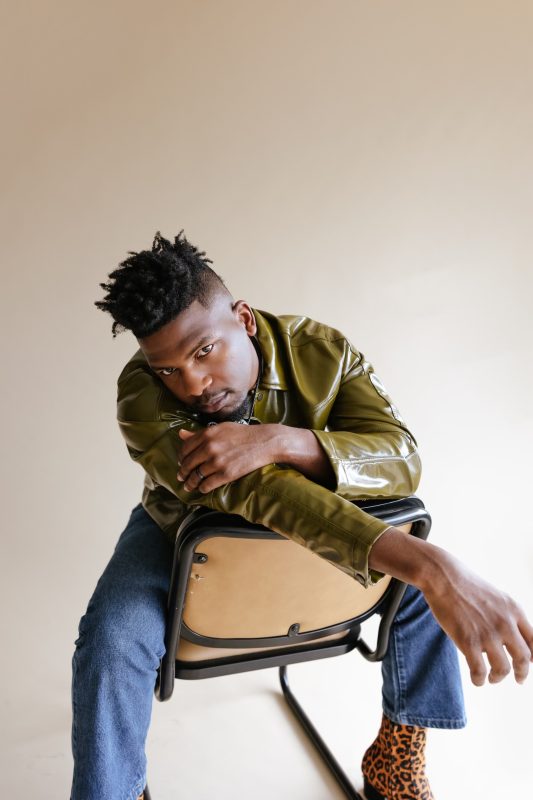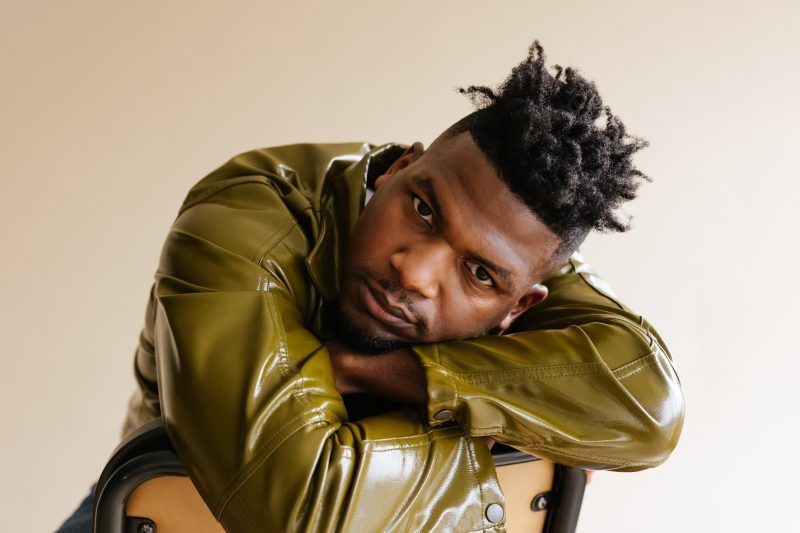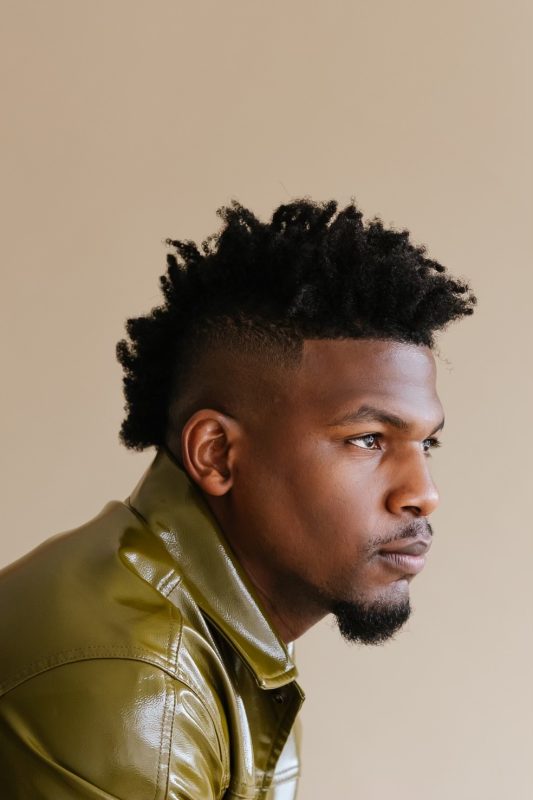

Danté Stewart
Acclaimed Memoirist
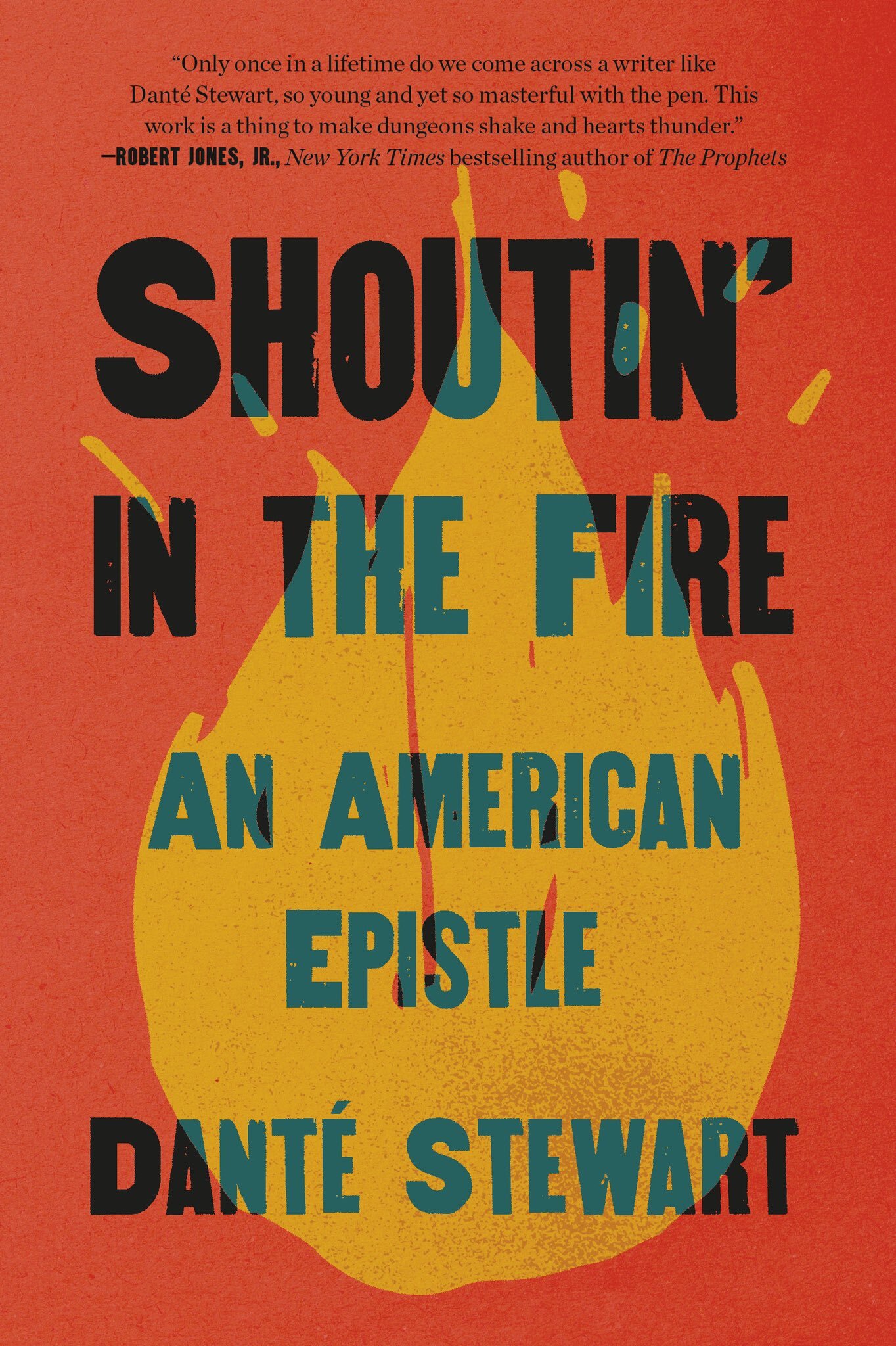
Readings &
Lecture Topics
- In Praise of Being Black and Alive
- Before the Mourning Comes
- Why Rage is a Spiritual Virtue & Not A Social Vice
- When I Learned Jesus is Black
- Wounded Black Men Can Heal
- Writing Ourselves Into Freedom
- Beginning with the End in Mind: Exploring Writing From And To The Heart
- An Evening with Danté Stewart
Biography
“Danté Stewart’s voice rising is one of the reasons I believe in our common future. It is an honor to be invited into the intimacy, honesty, and inborn wisdom that he offers up in his experiences and insights, his prayers and his theology, his grief and his rage, his exuberance and his love.” —Krista Tippett
“A magnificent offering.” —Kiese Laymon
Danté Stewart is the author of debut memoir Shoutin’ in the Fire: An American Epistle, a stirring meditation on being Black and learning to love in a loveless, anti-Black world. The book won Stewart the Georgia Author of the Year award from the Georgia Writer’s Association in 2022, by The Center for American Progress as one of “22 Faith Leaders to Watch in 2022,” and by Religion News Service as one of “Ten Up-And-Coming Faith Influencers.
Throughout the memoir, Stewart uses his personal experiences as a vehicle to reclaim and reimagine spiritual virtues like rage, resilience, and remembrance—and explores how these virtues might function as a work of love against an unjust, unloving world. This sharply observed journey is an intimate meditation on coming of age in a time of terror. Stewart reveals the profound faith he discovered even after experiencing the violence of the American church: a faith that loves Blackness; speaks truth to pain and trauma; and pursues a truer, realer kind of love than the kind we’re taught, a love that sets us free.
Of Stewart’s debut, Imani Perry laudes, “Standing in a centuries old tradition of spiritual autobiography, Shoutin’ in the Fire is at once a coming of age story and a conversion narrative. From Pentecostal origins, he travels through institutions that hold onto an idea of ‘white Jesus,’ and finally to a spiritual reckoning in which he recognizes Black life to be not only valuable but holy.” While Deesha Philyaw notes, “Some of us joke about Jesus needing better PR than what today’s evangelical church provides. Enter Danté Stewart. With unparalleled candor, vulnerability, and love, Stewart takes us along his personal journey to understanding what it is to be Black, Christian, and American. The church is long overdue for a reckoning with white supremacy, and Stewart has written a brilliant blueprint.”
Stewart’s voice has been featured on CNN, The Washington Post, Christianity Today, Sojourners, The Witness: A Black Christian Collective, Comment Magazine, and more. He received his B.A. in Sociology from Clemson University. He is currently studying at the Candler School of Theology at Emory University in Atlanta, GA.
Op-eds by Danté Stewart
• “Civility Won’t Save Us” – TIME
• “Reading James Baldwin in an Election Year” – TIME
• “Overturning Roe v. Wade Isn’t About Christian Morals or Protecting Life” – Parents
• The Right’s Brittney Griner Obsession – The Atlantic
Short Bio
Danté Stewart is a speaker and a writer whose work in the areas of race, religion, and politics has been featured on CNN and in The Washington Post, Christianity Today, Sojourners, The Witness: A Black Christian Collective, Comment, and elsewhere. He received the Georgia Author of the Year Award for his memoir, Shoutin’ in the Fire. He received his BA in sociology from Clemson University and is currently studying at the Candler School of Theology at Emory University in Atlanta, Georgia.
Visit Author WebsiteVideos
Publications
Shoutin' in the Fire: An American Epistle
Memoir, 2021
“This book is a kind of map in stories and truths to how we might, as a people, become more whole.” –Krista Tippett
In Shoutin’ in the Fire, Danté Stewart gives breathtaking language to his reckoning with the legacy of white supremacy—both the kind that hangs over our country and the kind that is internalized on a molecular level. Stewart uses his personal experiences as a vehicle to reclaim and reimagine spiritual virtues like rage, resilience, and remembrance—and explores how these virtues might function as a work of love against an unjust, unloving world. In 2016, Stewart was a rising leader at the predominantly white evangelical church he and his family were attending in Augusta, Georgia. Like many young church leaders, Stewart was thrilled at the prospect of growing his voice and influence within the community, and he was excited to break barriers as the church’s first Black preacher. But when Donald Trump began his campaign, so began the unearthing. Stewart started overhearing talk in the pews—comments ranging from microaggressions to outright hostility toward Black Americans. As this violence began to reveal itself en masse, Stewart quickly found himself isolated amid a people unraveled; this community of faith became the place where he and his family now found themselves most alone. This set Stewart on a journey—first out of the white church and then into a liberating pursuit of faith—by looking to the wisdom of the saints that have come before, including James H. Cone, James Baldwin, and Toni Morrison, and by heeding the paradoxical humility of Jesus himself. This sharply observed journey is an intimate meditation on coming of age in a time of terror. Stewart reveals the profound faith he discovered even after experiencing the violence of the American church: a faith that loves Blackness; speaks truth to pain and trauma; and pursues a truer, realer kind of love than the kind we’re taught, a love that sets us free.
Articles & Audio
Read What’s In Print
• 10 up-and-coming faith influencers we wrote about (or published) in 2021 – Religion News
• Review: Shoutin in the Fire by Danté Stewart – Kirkus Reviews
• Newly Published, From Famous Manuscripts to a Bookstore in Egypt – New York Times
• Danté Stewart is Rekindling Black Theological Imagination – Sojourners
Listen to Audio
• Audio Excerpt of Danté Stewart’s Shoutin in the Fire – Penguin Random House
Selected Writings
Op-eds by Danté Stewart
• “Little Experiments of Liberation” – Oxford American
• “Progress is not a given. It is won.” – TIME
• “Civility Won’t Save Us” – TIME
• “Reading James Baldwin in an Election Year” – TIME
• “Overturning Roe v. Wade Isn’t About Christian Morals or Protecting Life” – Parents
• The Right’s Brittney Griner Obsession – The Atlantic
Shoutin’ in the Fire (an excerpt)
“The truth shall set you free,” my momma always told me. But it was lying that gave me power.
The year is 1998. My name is “Debra’s Boy” to the Pentecostals, “Little Calvin” to my uncles. “Vacuum Boy,” my daddy will call me jokingly from the living room, before he adds, “It’s time to clean up.” And to my momma: “Boy.” She’ll say, “Boy.”
I am skinny. My feet are wide. Black Nike Air Force 1s are my shoe of choice come time to pick out the one pair of shoes we get a year. The white, dusty South Carolina dirt sits in the cracks of the swoosh. I wear my Carmelo Anthony jersey everywhere. White, red numbers, his name covering my own. Most days I’m on a dirt court, shooting a ball that is barely inflated. I’ll dribble in the thick, sweltering South Carolina heat. Sometimes when I shoot, I close my eyes and run into a future where I imagine myself as Carmelo. A name remembered, called.
The year is 2006. My name is “Church Boy” to my friends. They have heard that I had the Holy Ghost. They have heard that me, my family, and all the Black folk between my grandmother’s red brick house and our white-stained brick church speak in an unknown language, and sweat like we are on fire, burning.
In the morning, on the bus, I scramble to finish homework in my seat. We pass the Baptist church, the gas station where we’d get our chicken and livers and hot sauce, and my old elementary school that got shut down, on our way to Calhoun County High School.
I get off the bus and walk onto campus with my busted black book bag revealing busted black books. My hair is short, barely curly, barely brushed. I have on an oversized white shirt like we would see in music videos.
“What’s up, Church Boy!” my friend Jakeem says to me as I enter class.
I nod at him.
“Nigga,” Jakeem says, “we gon’ ball out or what?” We talk about all the yards I was going to get rushing. I am a running back who can never wait for Friday nights when the stadium lights are on and I think I am Reggie Bush. I think about all the ways Reggie ran, and all the ways I want to run.
“Nigga,” I tell Jakeem, dapping him up, smiling, “now you know we gon’ ball.”
The year is 2010. My name is “Stew.” I am bigger, older. I’m still Debra’s son and Church Boy—but I am also beginning anew, or so I think.
I step onto Clemson University’s campus where I’ll be playing football for the next four years. The day is hot. South Carolina’s furnace is unyielding, scorching. I barely know anyone. I barely know myself.
On this afternoon, we’re preparing for the Big Weigh-In.
“Ayeeee, my dawg,” another player says, as we walk into the weight room together. “Nigga,” he says, in a joking voice, his Atlanta accent coming out, “whatdehell you got on?”
I look down at my brown loafers, no socks, feet smelling like burnt rubber and baking soda.
“What?” I say, imitating his slow Atlanta drawl. “Whatyoumean?” We dap each other up.
“Who you is?” he says.
“I’m Stew,” I say. “Good to meet you, my nigga. What about you?”
“GP,” he says. “You hear about all the running them boys did in the summer? They say we gonna do a lot of running in fall camp.”
“Nah, nigga,” I say, thinking about how much I feel the sun beat on my face already, my shirt sticking to my body like I just went swimming. “I ain’t heard nothing about that!”
GP takes his hat off to wipe the sweat off his face and laughs. “Well, you better get ready.”
I am barely in shape. I know I am fast, but I am not ready to work out like that.
“Boy gonna need some Gatorade and some AC,” he says.
I laugh. “Nah, nigga, we gon’ be straight.”
I feel at home. I don’t really know who I am. I’ve been struggling with all these names my whole young life, running into dreams wherever I can find them. But for now, at least, I am home.
Clemson was green. Year-around the grass looked like someone spray-painted it. There are trees everywhere. Between the stadium and the classrooms that I would arrive to in my orange joggers and hoodie was nothing but hills. The winters are cold. Chilly. Dark. The summers are scorching, hot, sticky. The springs are unbearable for my allergies. The falls are, as they say, God’s country. There are tiger paws imprinted on the street leading up to the brick building bearing the name of a slaveholder; some are orange, some are white. We would make jokes that we were the actual university of South Carolina, though another school in the capital of the state bore the name.
If you travel the right way, you can see the Blue Ridge mountains, their hues a bit of gray, a bit of white, a bit of blue, in the background. It is an agriculture school, which means that you could travel any direction and pass country fields full of haystacks, and old gas stations that made you feel like you were in the fifties or sixties. That part felt like home.
Game days at Clemson were full of excitement. Everything would shut down. Traffic would make you feel like you were in Atlanta. Cars would creep slowly; there was hardly movement because of the sheer amount of people coming to see the Tigers play. Our buses would be led to town. The police cars’ lights would be shining. The place would become still as we’d creep over the hill to arrive for the Tiger walk. It was like nothing I had seen before. Hundreds of people would greet us, their hands reaching out to touch us, trying to get us to sign their shirts, their footballs, their faces, sometimes even their children. At the end of every game, fans would storm the field just to sing the university’s song. They would put their hands around our shoulders, sway side to side, as we lifted up our hands in salute to the paw that brought us both to the same place.
I loved every bit of it.
We were beloved. And why shouldn’t we have been? We gave fans stories to talk about with their families around the dinner table. We had given them reason to brave the long hills. We had given them tears. We had given them meaning. And in the midst of it all we had given them something they never deserved: We gave them confidence that the football field was the world and that the world was okay and what mattered most between both of our lives was our ability to run fast, jump high, and give them more things to talk about with their families.
“Everybody has a place here,” our coach would say. And I believed it. But not everybody had the home that we thought it would be.




